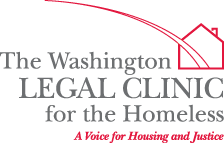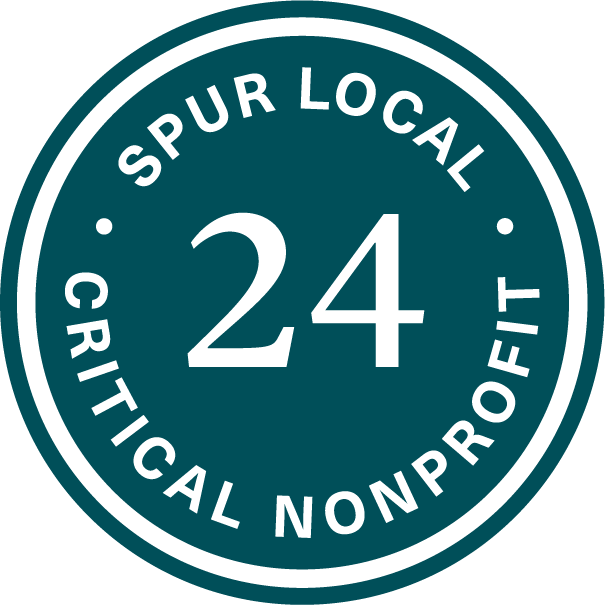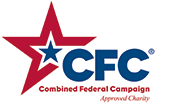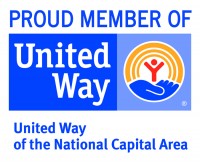4/2/20 Update: Check out our new blog and a new advocacy letter for the next round of emergency legislation.
The undersigned organizations sent the below letter to the Mayor and DC Council Friday afternoon. The DC Council will consider emergency legislation on Tuesday, March 17, 2020 to support DC residents and businesses during the COVID-19 public health emergency. If your organization would like to sign onto this letter, please contact joanna@jufj.org. This post will be updated periodically as we receive new sign-ons.
Friday, March 13, 2020
Dear Mayor Bowser, Chairman Mendelson, and Members of the DC Council:
As social and legal service providers, and organizers and advocates for socially, racially, and economically just policies in the District, we write to thank you for your leadership in the midst of the Coronavirus pandemic. We are grateful the District is taking quick and decisive action to protect public wellbeing including by declaring a State of Emergency in the District and proposing the “COVID-19 Response Emergency Amendment Act of 2020.”
It is unfortunately times like this that require us to confront the interconnectedness of the human condition and entwine our collective fates for the sake of the greater good. Public health crises should not be the catalyst that drives our ability to meet the needs of the District’s many vulnerable residents, yet here we are, and we are calling on you, our elected leadership, and your designees to do whatever it takes to protect all DC residents from the spread of disease, ensure economic stability, and provide for the basic needs of our most vulnerable residents grappling with large scale and rapid changes to their daily routines and income. As a financially healthy city with full reserves and additional FY 2019 surplus capital at our disposal, we are better prepared than most to do our part to serve our residents and flatten the curve. We hope this letter will further spur legislative and administrative action by the District in response to the myriad harms posed by COVID-19.
The “COVID-19 Response Emergency Amendment Act of 2020” is an excellent first step as the District prepares to alleviate the suffering that is already being experienced by many. We appreciate the Council’s proactive work to advance such legislation. We believe provisions of that legislation can be strengthened in the following ways:
- Use the full flexibility granted by the US Department of Labor to protect workers by providing UI benefits in the following scenarios related to COVID-19: (1) An employer temporarily ceases operations due to COVID-19, preventing employees from coming to work; (2) An individual is quarantined with the expectation of returning to work after the quarantine is over; and (3) An individual leaves employment due to a risk of exposure or infection or to care for a family member. In addition, ensure that our UI rules follow federal law not requiring an employee to quit in order to receive benefits due to the impact of COVID-19.
- Adopt work-sharing in the Unemployment Insurance program to provide alternatives to mass layoffs, and encourage participation among employers by providing 100 percent payment of work-sharing benefits. Under this program, instead of laying off workers, employers can reduce worker hours and employees can receive unemployment benefits proportionate to the hours they lose. For instance, an employer, such as a hotel, with 200 workers that otherwise might lay off 50, the employer could instead employ all 200 four staggered days a week; workers then would receive unemployment benefits covering the one or more days a week they were not employed (because some people’s typical job schedule is schedule days per week). The District should take additional steps to inform employers of this program. For the small business employers receiving District general operating support grants to offset reduced consumer demand, strongly encourage them to participate in workshare.
- Establish a special purpose fund through Unemployment Insurance that enables contractors and consultants to receive benefits to make up for lost income due to the present state of emergency. Contractors and consultants are not typically eligible for Unemployment Insurance and are therefore otherwise without recourse to replace their slowed or eliminated income stream at this time.
- Expand DCFMLA job protections to all employees, including those working for very small businesses, who need to care for themselves or a loved one who has tested positive for coronavirus; extend job protection to those employees unable to perform their regular work from home and who need to take self quarantine precautions because they are in a high-risk category.
- Require all District businesses to immediately provide at least 14 paid sick days to their employees — including for reasons of social distancing and self-quarantining — regardless of their size or an employee’s tenure; companies of all sizes who experience hardship from paying out these extra sick days should be eligible for emergency relief through the small business grant program. Further, the small business grant program referenced in Section 202 should cover all registered businesses and nonprofit entities in the District who experience significant financial harm as a result of COVID-19, not just businesses who are already registered with the District’s “Certified Business Enterprise” program.
- Add a 14-day grace period following the end of a public health emergency for Sections 303-306 so that people have time to return to work and earn a paycheck to enable them to pay necessary bills.
- Amend Section 306 to put in place an eviction and foreclosure moratorium on new cases filed and create stays for pending cases. Requiring people to attend court proceedings and risk exposure to the virus and then potentially be kicked out of their housing at a time when the public is being urged to stay home is fundamentally irresponsible.
- It is further irresponsible to require most court proceedings to continue during a state of emergency. In accordance with the legislation’s recommendation to suspend District government meetings to minimize crowds, urge the Chief Judges of DC Superior Court and DC Court of Appeals to suspend all non-emergency court proceedings on a temporary basis pending a resolution of the current public health crisis.
- Amend section 308 to say “the Mayor shall” as opposed to “the Mayor may”.
- Amend section 308 to include the public benefits provided pursuant to the Homeless Services Reform Act.
- Related to Section 308 of the emergency legislation, enhancements should be made to:
- Include a moratorium and/or stay of any public benefit terminations or adverse actions, including emergency shelter and housing assistance.
- Temporarily suspend annual redetermination of family eligibility for childcare services, WIC, SNAP, Medicaid, and TANF to ensure that temporary changes in family workforce participation, earnings, or other factors due to COVID-19 do not impact family eligibility.
- Reduce tedious public benefit paperwork processes to make it easier for clients to report a reduction in income and/or to report an addition to their current family household makeup if they have a college-aged child who is home for an extended period; families in these circumstances will need to have their benefits adjusted expeditiously so they can continue to afford necessities like groceries.
- Ensure college students currently eligible for public benefits remain enrolled even if their schooling and/or job status change; expand eligibility for public benefit programs for college students who remain in the District during the nation-wide shuttering of higher-education campuses.
- Require presumptive, low barrier access to emergency family shelter via the shelter hotline so families are not required to go to Virginia Williams Family Resource Center and obtain documents to prove eligibility from schools and other entities that may not be open during the emergency. (At the conclusion of the public health emergency, the District has statutory authority to redetermine eligibility as needed.)
We also urge you to expand the scope of the emergency legislation to ensure greater protections for overall public health and to meet the most pressing needs of some of our most high-risk individuals. Our top priorities for legislative additions include:
- The District should cover all costs associated with virus testing so that no one is financially burdened by taking the responsible steps for public health to come forward, get tested, and inform their networks of possible exposure. To facilitate this, we should be establishing two testing sites in every Ward in compliance with CDC safety protocols to ensure minimal transportation barriers to testing services. Only by acting swiftly to quarantine possible disease vectors can we flatten the curve. Further, the District should cover all medical treatment of individuals who do not have insurance or who are underinsured. Finally, more public guidance and public outreach – through telephonic and virtual channels – is needed to inform people of where to go for testing and treatment, and how to get there safely.
- Ensure medically vulnerable residents experiencing homelessness who live on the street or in communal settings have access to safe shelter that meets CDC COVID-19 guidelines. This will minimize their risk to virus contraction and the broader risks posed by unnecessary public outings and congregating at this time. We must prioritize safely housing all people in high risk categories: older residents, those with diabetes, those with respiratory challenges, and all those with chronic health conditions or underlying health conditions that can weaken a person’s immune system. We recommend utilizing the District’s vacant hotel rooms to house these individuals throughout March, at a minimum.
- Biannual recertification of the DC Healthcare Alliance must cease immediately and all currently enrolled individuals should remain enrolled through the end of the public health emergency. Additionally, the DC Government should establish an online or telephonic process to facilitate the filing of new applications for Alliance coverage so that DC’s immigrant residents can access healthcare coverage without financial hardship from the safety of their homes. An uninsured population only acts to exacerbate public health crises; this gaping loophole in our local health system should have been remedied years ago.
- The District must ensure that no family has to choose between economic security, their child’s safety, and access to learning opportunities, and that all families have access to adequate nutrition. To do so, the District must:
- Allow parents and primary caregivers to utilize unemployment insurance to replace lost wages due to the need to stay home to care for children in the coming weeks and months.
- Ensure children – and their parents – who are eligible to utilize school lunch programs as well as families who are currently enrolled in the District’s child care subsidy program will have access to meals throughout school closures; meal preparation and distribution must adhere to thorough safety precautions to minimize exposure to the virus of those preparing, serving, delivering, and consuming meals. This will likely require establishment of more meal sites and dining staggering protocols to minimize accumulations of large groups of people.
- Provide parents with clear guidance on how to support their child’s learning, development, and mental health throughout school and childcare closures. Appropriate plans should be implemented to contact all parents by phone to ensure parents are prepared to have their children home full time and meet their learning continuation needs. For those for whom remote learning is desired but have technology barriers, the District should help those students by expanding the free DC Wifi network to citywide, distributing laptops or ipads, and/or ensure course materials can be safely printed at free school meal sites.
- Waive any policies that terminate eligibility for child care subsidies based on a specific number of absent days within their 12-month eligibility period. These are unprecedented times and with the public being encouraged to stay home, children and families must not be penalized for following the health and safety precautions being issued by the government.
- Waive work and education requirements associated with a parent’s eligibility for child care subsidies to reflect disruptions to our local economy including recommendations for workplaces and educational settings to enforce social distancing precautions by temporarily shuttering.
- Adjust child care subsidy reimbursement payment policies so they are based on enrollment of children rather than actual attendance. This will allow children and parents to stay home as necessary without disrupting revenue for providers and their educators who already experience precarious operating budgets.
- Create and fund sanitation protocols in accordance with CDC guidelines for key populations who live in close quarters. The DC government must immediately act to employ efforts that manage the spread of infectious disease within populations experiencing homelessness in shelters/encampments, those residents living in our larger public housing complexes, seniors in nursing homes or assisted care facilities, and those incarcerated within DC facilities. We must guarantee access to necessary personal hygiene items and follow CDC guidelines regarding necessary and regular sanitation precautions.
- Ensure continuity of care for District residents with physical, behavioral, and mental health challenges by maintaining current services from the Departments of Health and Behavioral Health, and by relaxing healthcare provider restrictions related to virtual services so that doctors, psychologists, social workers, and others are able to more easily utilize telehealth capabilities to treat and check in on their patients. This will help minimize unnecessary outings of both doctors and patients. Special attention should be paid to the comprehensive health needs of vulnerable populations such as people with disabilities, pregnant people, people with addictions to drugs and alcohol, those with mental health challenges, low-income LGBTQ+ residents including those engaged in sex work for survival, immigrants, and others who have insecure housing.
- Conduct a robust public education campaign on paid sick days utilizing social media, automated calls, and email outreach, as available. It does no good to tell people to “stay home” if they cannot afford to do so. Workers must know their rights that enable them to stay home when ill or caregiving without risking financial stability.
- Establish secure hotlines and/or online systems encouraging workers to report violations of access to paid sick days and tenants to report violations of evictions or bill collection. The Department of Employment Services should operate the hotline services for workers and should act with haste to investigate the claims made and take punitive actions against employers found to be improperly denying accrued sick leave. The Office of the Tenant Advocate should operate the hotline services for tenants and act with haste to intervene with landlords, utilities, and collection agencies to halt adverse actions experienced by residents during a likely severe disruption to their income.
- Direct District government workers to act from a place of presumptive eligibility for all people applying for government assistance of all forms at this time and throughout the coming months. Acting quickly to get people the help and support they need will better enable our city to prevent massive economic disruption and reduce disease transmission. Now is not the time to be hard hearted with our resources – we have a robust rainy day fund so let’s use it to do right by the residents, workers, and businesses of the District of Columbia.
We recognize there is more to be done to support our neighbors throughout the COVID-19 public health emergency and we also recognize and appreciate all that is being done already to provide support and relief. We look forward to working with you further as community needs change, as assistance from the Federal Government – hopefully – becomes available, and as the global health situation evolves. We thank you for your attention to these matters in service of the residents of the District of Columbia.
Sincerely,
Autistic Women & Nonbinary Network (AWN)
Bread for the City
Children’s Law Center
DC Action for Children
DC for Democracy
DC Environmental Network
DC Fiscal Policy Institute
DC Hunger Solutions
DC KinCare Alliance
DC Statehood Green Party
DC Tenants Advocacy Coalition
D.C. Tenants’ Rights Center
Fair Budget Coalition
Foggy Bottom Association
Fund for Community Reparations for Autistic People of Color’s Interdependence, Survival, and Empowerment
GLAA
Good Faith Communities Coalition
Jews United for Justice
Mothers Outreach Network
ONE DC
Pathways to Housing DC
Positive Force DC
Restaurant Opportunities Center – DC
Trabajadores Unidos de Washington DC (Workers United of Washington, DC)
Washington Council of Lawyers
Washington Lawyers’ Committee for Civil Rights & Urban Affairs
Washington Legal Clinic for the Homeless
We Are Family Senior Outreach Network






I fully support this legislation i its entirety